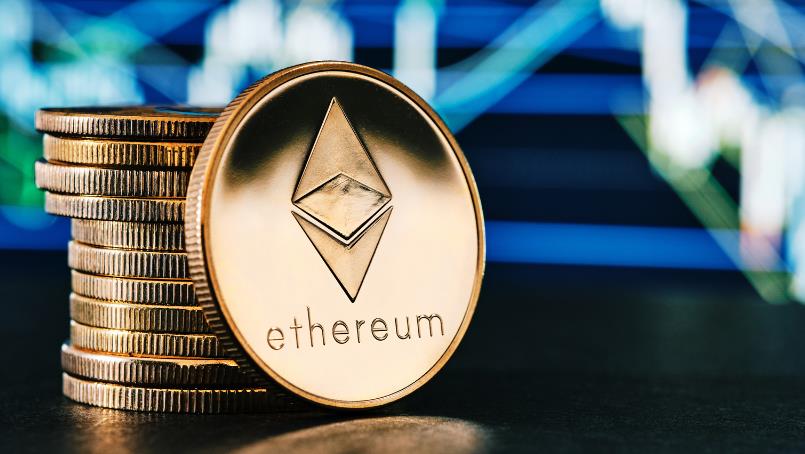
The Power of Smart Contracts and the Future of Blockchain With Ethereum
Blockchain technology revolutionized the world with the advent of Bitcoin, providing a secure and decentralized digital currency. However, Bitcoin’s use case primarily revolves around transferring value.
Ethereum, introduced by Vitalik Buterin in 2015, took the blockchain concept a step further. Ethereum is not just a cryptocurrency; it’s a decentralized platform for creating and executing smart contracts, offering a myriad of possibilities beyond Bitcoin’s capabilities. Additionally, if you want to know more about investments and firms, you may visit Immediate Altcoin.
Understanding Ethereum
A Brief History of Ethereum and Its Creator, Vitalik Buterin

Ethereum’s story begins with a young programmer named Vitalik Buterin, who envisioned a blockchain platform capable of executing arbitrary code. Launched in 2015, Ethereum has since become one of the most prominent players in the cryptocurrency space.
Ethereum vs. Bitcoin: Key Differences and Similarities
While both Bitcoin and Ethereum utilize blockchain technology, they have fundamental differences. Bitcoin primarily serves as digital gold—a store of value—while Ethereum is a programmable platform that enables developers to create decentralized applications (DApps).
The Role of Ether (ETH) as Both a Cryptocurrency and a Utility Token
Ether (ETH) is Ethereum’s native cryptocurrency, serving various roles within the Ethereum ecosystem. It acts as both a digital currency and a utility token that powers smart contracts and transactions on the network.
Smart Contracts: The Game-Changer
What Are Smart Contracts?
A smart contract is a self-executing agreement with terms written into code. It automatically executes when conditions are met, eliminating the need for intermediaries. Smart contracts are stored on the blockchain and ensure transparent and secure facilitation of contractual terms.
How Smart Contracts Work on the Ethereum Blockchain?

Ethereum’s smart contracts are executed on its decentralized virtual machine, the Ethereum Virtual Machine (EVM). These contracts are written in Ethereum’s programming language, Solidity, and are stored on the blockchain, ensuring transparency and immutability.
Real-World Applications of Smart Contracts in Various Industries
Smart contracts find applications across diverse sectors, from finance and supply chain management to real estate and healthcare. For instance, in supply chain management, smart contracts can automate tracking and verification of goods, enhancing efficiency and reducing fraud.
Benefits and Challenges of Smart Contracts
The benefits of smart contracts include transparency, security, and automation. However, challenges like code vulnerabilities and legal recognition still need to be addressed.
Ethereum 2.0: The Transition to Proof of Stake
Exploring the Current Consensus Mechanism (Proof of Work)
Ethereum currently relies on the Proof of Work (PoW) consensus mechanism, which requires miners to solve complex mathematical puzzles to validate transactions. While PoW has been successful, it faces scalability and environmental challenges.
The Motivation Behind Ethereum 2.0

Ethereum 2.0, also known as Eth2 or Serenity, aims to address these issues by transitioning to Proof of Stake (PoS). PoS replaces miners with validators who lock up their ETH as collateral to propose and validate blocks, reducing energy consumption and enhancing scalability.
How Proof of Stake (PoS) Improves Scalability, Security, and Sustainability
PoS offers several advantages, including improved scalability, reduced centralization risks, and a more eco-friendly approach to consensus. Validators are incentivized to act in the network’s best interest, as their ETH stake is at risk.
The Roadmap for Ethereum 2.0 and Its Impact on the Ecosystem
Ethereum 2.0’s rollout is a phased process, with multiple upgrades planned. Its successful implementation is expected to propel Ethereum to new heights, making it more scalable, secure, and sustainable.
Decentralized Applications (DApps)
What Are DApps and Why Are They Important?
Decentralized Applications (DApps) are blockchain-based applications that operate without a central authority. They bring transparency, security, and censorship resistance to various domains.
Examples of Popular DApps and Their Functionalities
Well-known DApps include Uniswap (a decentralized exchange), Aave (a lending platform), and CryptoKitties (a blockchain-based game). These applications showcase the diversity of possibilities enabled by Ethereum.
How DApps Are Reshaping Various Industries?

DApps are disrupting industries like finance, gaming, and social media by providing alternatives to traditional centralized platforms. They empower users by giving them control over their data and assets.
Challenges and Potential Future Developments in the DApp Space
Despite their potential, DApps face challenges related to user experience, scalability, and regulatory compliance. The future of DApps on Ethereum may involve layer-2 solutions and improved user interfaces.
DeFi: The Financial Revolution on Ethereum
Introduction to Decentralized Finance (DeFi)
Decentralized Finance, or DeFi, represents a financial revolution on Ethereum. DeFi applications provide financial services such as lending, borrowing, and trading without traditional intermediaries.
Key DeFi Platforms and Their Use Cases
Prominent DeFi platforms include MakerDAO (a decentralized stablecoin), Compound (a lending protocol), and SushiSwap (a decentralized exchange). These platforms offer various financial instruments and opportunities.
The Benefits and Risks of Participating in DeFi
DeFi provides access to financial services for individuals worldwide. However, it also carries risks such as smart contract vulnerabilities and market volatility. Users must exercise caution.
Regulatory Challenges and the Future of DeFi on Ethereum

The rapid growth of DeFi has attracted regulatory attention. The future of DeFi on Ethereum may involve regulatory compliance and increased scrutiny.
Ethereum’s Ecosystem and Future Outlook
The Ethereum Improvement Proposal (EIP) Process
EIPs are proposals for changes and improvements to the Ethereum network. They play a crucial role in Ethereum’s development, fostering innovation and upgrades.
Other Blockchain Projects and Tokens Built on Ethereum
Ethereum’s open-source nature has led to the creation of numerous blockchain projects and tokens, expanding its ecosystem and use cases.
Competing Blockchain Platforms and Ethereum’s Position in the Market
Ethereum faces competition from other blockchain platforms, such as Binance Smart Chain and Solana. Ethereum’s established network effect and development community give it a competitive edge.
Future Developments, Upgrades, and Potential Challenges for Ethereum
The future of Ethereum holds exciting developments, including Ethereum 2.0 upgrades, layer-2 solutions, and increased adoption. However, challenges like scalability and regulatory compliance must be addressed.
Conclusion
In conclusion, Ethereum has matured from its pioneering roots into a dynamic ecosystem that transcends the limitations of Bitcoin. Empowered by the concept of smart contracts, Ethereum has unlocked an array of opportunities, including decentralized applications (DApps) and the decentralized finance (DeFi) movement.
The imminent Ethereum 2.0 upgrade is poised to tackle the platform’s current challenges, ushering in scalability and sustainability. As Ethereum’s ever-expanding ecosystem continues to flourish and adapt, it maintains its enduring and profound impact on the blockchain and cryptocurrency industry.
Author Profile

- Blogger by Passion | Contributor to many Business and Marketing Blogs in the United Kingdom | Fascinated with SEO and digital marketing and latest tech innovations |
Latest entries
 Digital MarketingMay 27, 2025The Untapped Potential of Local PPC Ads in the UK Digital Entertainment Market
Digital MarketingMay 27, 2025The Untapped Potential of Local PPC Ads in the UK Digital Entertainment Market TechnologyMay 6, 2025Maximize SAP SuccessFactors Analytics with These 5 Key Benefits
TechnologyMay 6, 2025Maximize SAP SuccessFactors Analytics with These 5 Key Benefits Digital MarketingApril 22, 2025Why IT Support is Crucial for Digital Marketing Agencies?
Digital MarketingApril 22, 2025Why IT Support is Crucial for Digital Marketing Agencies? Digital MarketingApril 11, 2025Digital Marketing Tactics That Generated £1M in Revenue for UK Retailers
Digital MarketingApril 11, 2025Digital Marketing Tactics That Generated £1M in Revenue for UK Retailers

